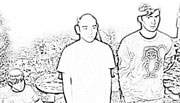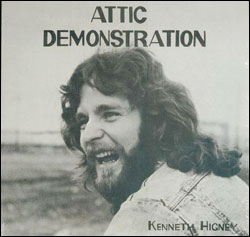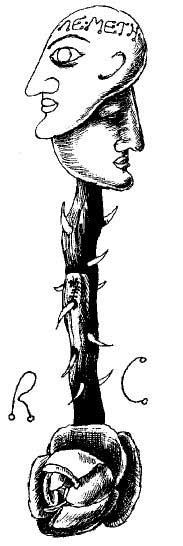THE BAD-ASS, the strange, the desperate, and the sublime rub shoulders on Harry Smith’s Anthology of American Folk Music, Vol. 4, a double-disc set of deep roots music that includes Robert Johnson, the Carter Family, Bukka White, Uncle Dave Macon, the Monroe Brothers, and more. Smith compiled these 28 songs at the same time as his three-volume Anthology of American Folk Music (released in 1952 and reissued to much acclaim in ’97). The Anthology jump-started the folk revival of the ’50s and influenced a shitload of other music, too. It inspired Elvis Costello, Bob Dylan, Jerry Garcia, and Joan Baez and continues to cast a long shadow today. An unerring collection, it demonstrated the breadth of our immediate cultural past, in all its strange (sacred harp spirituals), unique (weirdly tuned Cajun music), and arresting (“I Wish I Was a Mole in the Ground”) qualities. The records were arranged not according to race or geography, but the way Lucretius or Plato might have made a mixed tape: “Ballads,” “Social Music,” and “Songs.” John Fahey considers it the best single collection ever assembled, and it’s tough to argue.
Various Artists
Harry Smith’s Anthology of American Folk Music Vol. 4 (Revenant/Harry Smith Archives)
A collaboration between the Harry Smith Archives and Fahey’s archivist-minded “raw musics” label Revenant, Vol. 4 is deluxely hardbound with a 96-page booklet. The notes alone are worth the price of admission, especially Ed Sanders’ lengthy biographical essay and historian Dick Spottswood’s ultradetailed notes on each song. But this set’s major revelation is the fact that it exists at all. You see, the track listing for this volume was long thought lost by the notoriously irascible genius, artist, filmmaker, and self-described “ethnopharmacologist.” It certainly would have fit a pattern: More than 150 major paintings and other works were lost in the ’60s, discarded by an unpaid landlord. And Smith was prone to do things like roll the sole print of a superdetailed, hand-painted film—which had taken years to create—down Broadway in the rain, in a fit of rage. “There were to be four of them,” Smith told musician and filmmaker John Cohen in 1968, “four volumes in the series. Red, Blue, Green were issued so that the element that was left out was earth. The real reason it didn’t come out was that I didn’t have sufficient interest.” The folks at the Archives were interested, however, and the sleuths uncovered a reel-to-reel preserving the intended track listing.
The first three volumes consist of music, as Smith himself wrote, “made between 1927, when electronic recording made possible accurate music reproduction, and 1932 when the Depression halted folk music sales.” But Vol. 4‘s recordings were made between 1928 and 1940, and this is no small difference. The immense regional distinctions that existed just a few years earlier begin to fade in front of your ears, while the personalities of individual musicians, as well as the dazzling qualities of their musicianship, become increasingly important. Vol. 4 illustrates an America struggling with itself—the rising costs and deep despair of the Depression, the mechanization of society, overseas assassinations, and backyard starvation.
Intensely raucous jug band party music, kazoo- and scat-powered jook blues, dour country-gospel, nimble-fingered Delta, and rollicking hill country blues are all here, plus one of the coolest, cruelest hillbilly-busting tunes you’ll ever hear (Al Hopkins & His Buckle Busters’ simple, crooning, yodel-and-violin-driven “West Virginia Gals”).
The words on Vol. 4 tell of a man who has to kill a woman because she will not marry him; what a drag it is to be locked up in the state penitentiary; a towering worker named John Henry vanquished by a machine; and corruption in Tennessee politics. Lip service is paid to the idea that a better world awaits off in the sky; there is redemption in the Heavenly Gospel Singers’ “Mean Old World,” but an awful lot of rage as well. By all means grab this revelatory set and learn these songs well; they’ll come in mighty handy when the next Depression rolls around.







